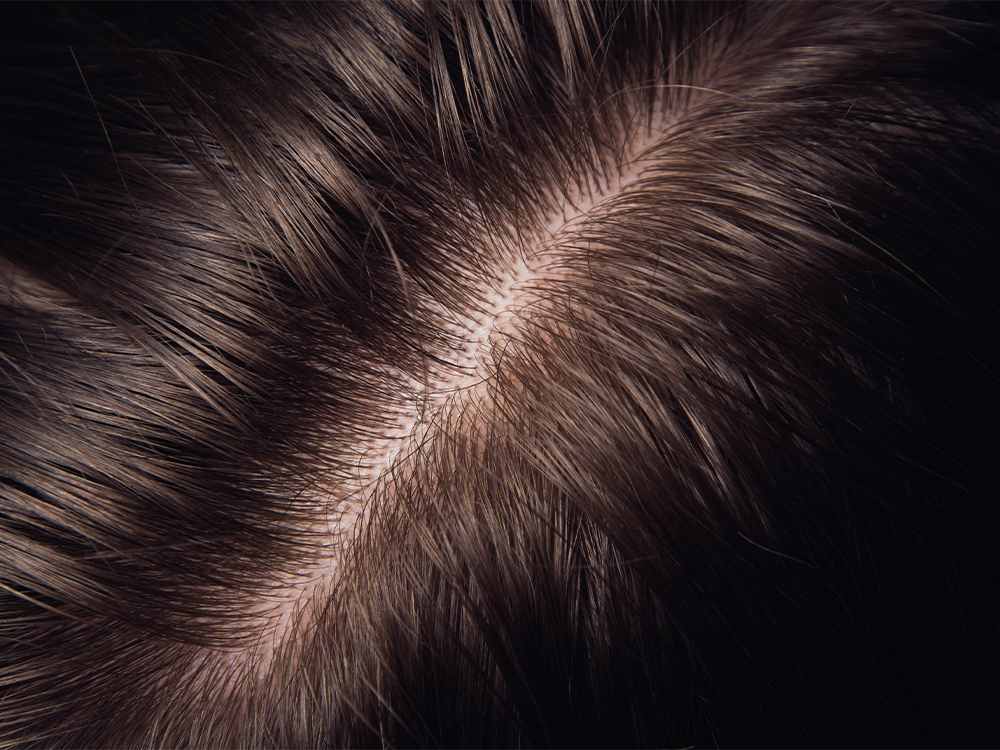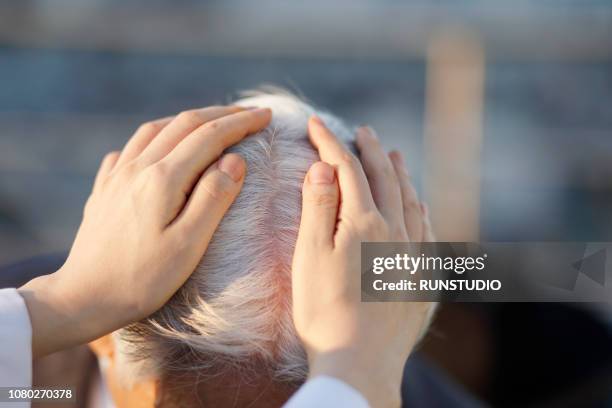How to Balance Scalp Oil Production
How to Balance Scalp Oil Production
Maintaining a healthy scalp is crucial for beautiful, strong hair. An imbalance in scalp oil production, whether excessive (leading to oily hair and scalp) or insufficient (resulting in dryness and itchiness), can significantly impact your hair's health and appearance. At hairy.cartlab.web.id, we understand the importance of a balanced scalp and are dedicated to providing you with the knowledge and tools to achieve it. Understanding your scalp's unique needs is the first step towards achieving that perfect balance. This comprehensive guide will equip you with the knowledge and strategies to effectively manage your scalp's oil production and achieve healthy, vibrant hair.
Our scalp, much like the rest of our skin, produces sebum, an oily substance that naturally lubricates and protects our hair. However, various factors can disrupt this delicate balance, leading to either an overproduction or underproduction of sebum. This imbalance can manifest in several ways, from greasy hair and an itchy scalp to dry, brittle strands and dandruff. Addressing this imbalance requires a holistic approach that considers both internal and external factors contributing to the problem.
This article will delve into the intricacies of scalp oil production, exploring the causes of imbalance and offering practical, evidence-based solutions to help you achieve a healthy, balanced scalp. We'll cover everything from diet and lifestyle adjustments to the right hair care products and techniques, empowering you to take control of your hair health.

Understanding Your Scalp's Oil Production

Before we delve into solutions, it's crucial to understand the factors influencing your scalp's oil production. Sebum production is influenced by several factors, including genetics, hormones, diet, and even stress levels. For instance, hormonal fluctuations, particularly during puberty, pregnancy, or menopause, can significantly impact sebum production. Similarly, an unhealthy diet lacking essential nutrients can affect your scalp's health and oil balance. Stress, too, can play a significant role, often exacerbating existing imbalances.
Identifying your scalp type – whether oily, dry, or combination – is the first step towards effective management. Oily scalps typically exhibit greasy hair, visible shine, and may be prone to dandruff. Dry scalps, on the other hand, often feel tight, itchy, and may be flaky. Combination scalps exhibit characteristics of both oily and dry scalps, often with an oily scalp at the roots and dry ends.
Understanding these factors allows for a more targeted approach. For example, if you suspect hormonal imbalances are contributing to your oily scalp, consulting a dermatologist or endocrinologist might be beneficial. If stress is a major factor, incorporating stress-reducing techniques like yoga or meditation into your routine can help. A balanced diet rich in essential fatty acids and vitamins can also contribute to a healthier scalp and balanced oil production.
Diet and Nutrition for a Balanced Scalp

Your diet plays a pivotal role in maintaining a healthy scalp and balanced oil production. Nutrients like zinc, vitamin A, and essential fatty acids are crucial for sebum regulation and overall scalp health. A diet deficient in these nutrients can contribute to both excessive and insufficient oil production.
Here's a breakdown of essential nutrients and their role in maintaining a balanced scalp:
- Essential Fatty Acids (EFAs): Omega-3 and omega-6 fatty acids are crucial for maintaining the scalp's moisture barrier and regulating sebum production. Good sources include fatty fish (salmon, tuna), flaxseeds, chia seeds, and walnuts. A deficiency in EFAs can lead to dry, flaky scalp.
- Zinc: Zinc plays a vital role in cell growth and repair, which is essential for a healthy scalp. It also helps regulate sebum production. Good sources include oysters, red meat, poultry, and beans.
- Vitamin A: Vitamin A is important for cell growth and the maintenance of healthy skin and hair. It also plays a role in sebum production. Good sources include sweet potatoes, carrots, spinach, and kale.
- B Vitamins: These vitamins are essential for healthy hair growth and scalp health. Deficiencies can lead to hair loss and scalp issues. Good sources include whole grains, leafy greens, and eggs.
Hair Care Routine for Balanced Scalp Oil Production

Choosing the right hair care products and establishing a consistent routine is crucial for managing your scalp's oil production. This involves selecting shampoos and conditioners that are appropriate for your scalp type and avoiding harsh chemicals that can disrupt the delicate balance of your scalp.
For oily scalps:
- Use a clarifying shampoo: Clarifying shampoos effectively remove buildup from hair products and excess sebum. However, avoid over-washing, as this can stimulate even more oil production. Aim for 2-3 times a week.
- Choose a lightweight conditioner: Apply conditioner only to the ends of your hair, avoiding the scalp to prevent further oil buildup.
- Consider using a scalp scrub: A scalp scrub can help exfoliate dead skin cells and remove excess oil. Use it once or twice a week.
- Use a moisturizing shampoo and conditioner: Choose products specifically formulated for dry hair. Look for ingredients like hyaluronic acid, glycerin, and shea butter.
- Avoid harsh sulfates and alcohol: These ingredients can strip your scalp of its natural oils, exacerbating dryness.
- Consider using a hair mask: A weekly hair mask can deeply hydrate and nourish your dry scalp and hair. Learn more about building a hair care routine tailored to your needs by visiting our guide on How to Build a Hair Care Routine for Your Hair Type.
- Use a balancing shampoo and conditioner: These products aim to address both oily and dry areas of your scalp.
- Focus on moisturizing the dry ends: Use a leave-in conditioner or hair oil to hydrate the dry ends while avoiding applying them to the scalp.
- Adjust your washing frequency: You might need to wash your scalp more frequently than your ends, perhaps washing your roots more often while conditioning only the ends.
Lifestyle Factors Affecting Scalp Oil Production

Beyond diet and hair care, several lifestyle factors significantly impact scalp oil production. These include stress management, sleep quality, and even the frequency of scalp massage.
- Stress Management: Chronic stress can disrupt hormone balance, leading to increased sebum production. Practicing stress-reducing techniques like yoga, meditation, or deep breathing exercises can help regulate hormone levels and improve scalp health.
- Sleep: Adequate sleep is crucial for overall health, including scalp health. Lack of sleep can disrupt hormone balance and contribute to increased oil production. Aim for 7-8 hours of quality sleep per night.
- Scalp Massage: Gently massaging your scalp can stimulate blood circulation, promoting healthy hair growth and potentially regulating sebum production. Use your fingertips to gently massage your scalp for a few minutes each day.
- Hydration: Drinking plenty of water keeps your body and scalp hydrated, contributing to overall scalp health. Dehydration can lead to dry, flaky scalp.
Seeking Professional Help

If you've tried various home remedies and lifestyle adjustments but are still struggling to balance your scalp's oil production, it's crucial to seek professional help. A dermatologist can diagnose underlying conditions contributing to your scalp issues and recommend appropriate treatment options.
Conditions like seborrheic dermatitis (dandruff), psoriasis, and fungal infections can all affect scalp oil production and require specific medical treatment. A dermatologist can perform a thorough examination of your scalp, identify any underlying issues, and recommend tailored treatment plans, including medicated shampoos, topical creams, or other therapies. Don't hesitate to seek professional advice if your scalp problems persist despite your efforts.
Conclusion
Balancing scalp oil production is a journey that requires understanding your individual needs and adopting a holistic approach. By focusing on diet, hair care routine, lifestyle adjustments, and seeking professional help when needed, you can achieve a healthy, balanced scalp and enjoy beautiful, vibrant hair. Remember, consistency is key! Continue to monitor your scalp's condition and adjust your approach as needed. For more in-depth information and personalized guidance on achieving a balanced scalp, visit our comprehensive guide: How to Balance Scalp Oil Production. And for those with short hair looking for volume, check out our tips on Tips to Style Short Hair for Volume. Remember, a healthy scalp is the foundation for healthy, beautiful hair.
Komentar
Posting Komentar